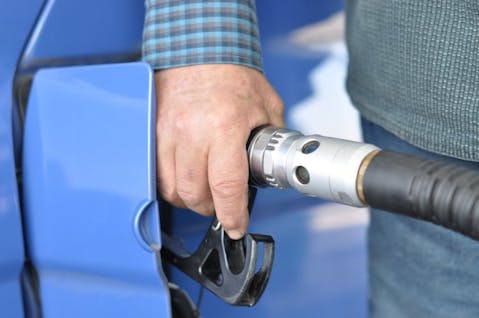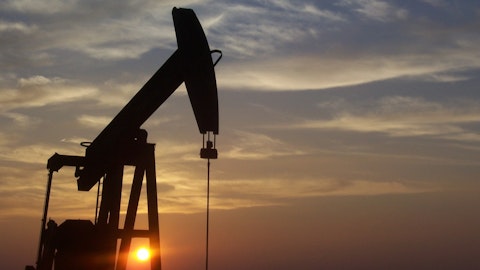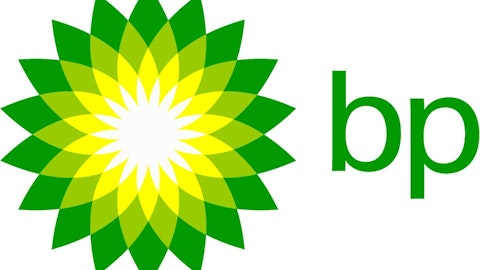BP plc (ADR) (NYSE:BP) recently traded at its lowest level since 2012. Shares of the oil company are down 15.71% year to date, lagging the S&P 500’s performance of -5.44%.
BP shares are down because long term crude price expectations have cratered. Many energy stocks are priced for the ‘lower for longer’ scenario where Brent stays below $50-60 per barrel for a long time. Numerous energy stocks trade near their 52 week lows and pay high dividend yields as a consequence.

Hedge funds like BP
Although BP shares are lower, hedge funds continue to like BP. According to SEC filings, both Point72 Management and Millennium Management established new call positions in BP in the second quarter, with Point72 buying up $35 million worth of calls and Millennium buying $27 million worth of calls. Quant fund D.E. Show also established a $23 million call position. We mention the hedge fund activity concerning BP because following hedge funds can generate alpha. Our research shows that the 15 most popular small-cap stocks among hedge funds have outperformed the market by nearly a percentage point per month between 1999 and 2012. We have been forward testing the performance of these stock picks since the end of August 2012, and they managed to return more than 118% over the ensuing 2.5+ years and outperformed the S&P 500 Index by over 60 percentage points.
FCF doesn’t cover the dividend
BP’s 7.8% dividend is not sustainable if crude prices stay low indefinitely. BP plc (ADR) (NYSE:BP) reported a free cash flow of $871 million in H1 versus dividend expenditures of $3.7 billion in the same time frame. Second half free cash flow will likely be worse than H1. Brent averaged $58 per barrel in H1, and will average less than that in H2 unless Brent rallies. Brent currently trades at $48 per barrel.
Assuming BP maintains its Q4 2014 organic cash flow run-rate at $80/barrel and full year capital expenditures of $20 billion, BP’s free cash flow will not fully cover its dividend unless Brent goes above $75-80 per barrel.
A short run cut is unlikely
While BP’s dividend isn’t sustainable in the long run, we don’t think BP will cut its dividend anytime soon. A dividend cut would be deeply unpopular with shareholders, many who depend on BP’s dividend checks for a substantial part of their income. BP has plenty of liquidity to wait for the crude recovery, which historically has taken up to 2 years after the initial steep declines to realize. We think management will postpone the dividend cut until the last possible moment.
Helping sustain the dividend is BP’s downstream business. Downstream is what is keeping BP profitable. BP’s downstream unit made $1.9 billion in underlying pre-tax replacement cost profits in Q2 and $2.2 billion in pre-tax profits in Q1. Downstream refiners are raking it in because gasoline and other refined product prices have not fallen as much as crude prices have, and a big part of that difference is going directly to their bottom lines. Many investors believe that downstream margins will stay healthy as long as Saudi Arabia continues manipulating the price of crude lower and global economic activity remains above sea-level.
Sell non-core assets to cover the dividend
We think management will sell non-core assets and eschew acquisitions to defend the dividend. There has been a substantial amount of M&A in the oil and gas sector. Schlumberger bought Cameron International for $14.8 billion in cash and stock. Shell bought BG Group for $70 billion. Halliburton bought/merged with Baker Hughes. Although Brent is below $50 and WTI is below $45, the demand for energy assets is healthy and BP could raise substantial sums by selling its non-core assets.
Dividend cut or not, we like BP plc (ADR) (NYSE:BP) shares. BP is a good long term holding because crude prices can’t stay low forever. The Middle East can’t run on $50 Brent for long. Sooner or later, OPEC will cut production and BP will be around to benefit.
Disclosure: None



